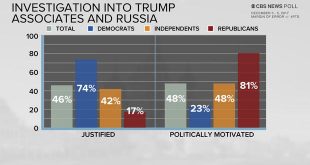Now that Vice News has been citing us, referring, for instance, to a “website promoted by the Kremlin-linked accounts called Fort Russ” it may be a good time to pull back the curtain for a glimpse behind the scenes at Fort Russ.First, of course, simply click “about” at the top of the FR home site. But I can only confess for one. Me.We are all of us polyglots. In my case, following the news in six languages, thanks to the internet, I have long known that the US press was feeding the country...
Read More »David F. Ruccio — Capitalism and punishment
The danger in looking only at economic statistics and not social and political ones as well to assess the results of economic institutions and policy. Interestingly, this is usually done from the capitalist frame with respect to non-capitalistic systems in order to criticize them. But the same standard is not applied in reverse.Occasional Links & CommentaryCapitalism and punishmentDavid F. Ruccio | Professor of Economics, University of Notre Dame
Read More »YouTube — In 1990 Thatcher warned that the Euro would end European democracy
A clip worth saving. Short. [embedded content] In 1990 Thatcher warned that the Euro would end European democracy ht Martin Armstrong at Armstrong Economics
Read More »Jeff Desjardins — A Timeline of Every Major Disruption in Payments
Infographic and short summary of the history of money and credit.Visual CapitalistA Timeline of Every Major Disruption in PaymentsJeff Desjardins
Read More »PoliticalDog101 — Congress Won’t Pay Infrastructure Bill…So Trump Wants State’s To Tax Their Own People For It
The way states pay for large capital projects in America since the 1930s is to recoup their tax dollars BACK from the Federal government…. Donald Trump ran of a BIG program to help states get people to work by fixing roadways, airports and other mass transit project with infrastructure program….Democrats were happy to agree to this….. Conservatives in Trump’s party want no part of it. Trump now thinks he can sell the states and localities paying for this thru RAISING TAXES on their...
Read More »Dennis J Bernstein — Russia-gate’s Reach into Journalism
The investigation to somehow blame Russia for Donald Trump’s election has now merged with another establishment goal of isolating and intimidating whistleblowers and other dissidents, as Dennis J Bernstein describes. Narrative control is essential to elite control in a representative democracy. Consortium NewsRussia-gate’s Reach into Journalism Dennis J Bernstein, a host of “Flashpoints” on PacificaAlso A smear campaign targeting Seder accused him of joking about rape in a satirical...
Read More »Philip Giraldi — Flynn Case Highlights Deep Political Corruption of US Security Services
Former CIA official Philip Giraldi argues that the US intelligence services have come politicized. While he focuses in this post on Robert Mueller and the FBI, the actions of former FBI director James Comey, Former CIA director James Brennan, and former Director of National Intelligence James Clapper are open to similar scrutiny.Strategic Culture FoundationFlynn Case Highlights Deep Political Corruption of US Security Services Philip Giraldi | Executive Director of the Council for the...
Read More »Peter Fleming — Is Homo Economicus Dead?
Peter Fleming tells what his book, The Death of Homo Economicus, is about. Economic Sociology and Political Economy Is Homo Economicus Dead? Peter Fleming | Professor of Business and Society at Cass Business School, City, University of London
Read More »Conn Hallinan — Rolling Snake Eyes in the Indo-Pacific
With the world focused on the scary possibility of war on the Korean Peninsula, not many people paid a whole lot of attention to a series of naval exercises this past July in the Malacca Strait, a 550-mile long passage between Sumatra and Malaysia through which pass over 50,000 ships a year. With President Trump and North Korean leader Kim Jong Un exchanging threats and insults, why would the media bother with something innocuously labeled “Malabar 17”? They should have. Malabar 17...
Read More »Livia Gershon — Are Free Markets Fictional?
US business über-guru Peter F. Drucker thought so.JSTOR DailyAre Free Markets Fictional? Livia Gershon
Read More » Mike Norman Economics
Mike Norman Economics


